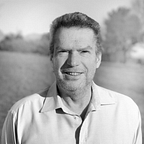Maintaining equilibrium in troubled times
“If the deck is stacked against you, reshuffle the cards” (Anon)
There’s a part of me that wishes that the above quote could represent life and that managing everything that life throws at you was that easy. It’s not! Life is not a board or card game where, if you are losing, you can just throw in your hand and wait for the next round. Even though you may have many support structures around you (loving family, empathic friends, warm colleagues, good advisors, etc.) that hold you up in difficult times, you are still going to face difficulties that seem impossible to solve. Life is tough, but it always has been enormously challenging. From the earliest times, surviving amid selfishness, greed, extortion, corruption, and power-lust has stretched the human being to the limit. Fairness, kindness, compassion, inclusion, and upholding human dignity are values that seem to be in short supply, resulting in an unequally competitive environment that has “win at all costs” as its motto.
Maintaining equilibrium is critical for balance — approaching life with a calm state of mind. Some stress is healthy and keeps one on one’s toes. Large amounts of stress and anxiety, however, especially when persistent, are harmful, their intensity unsettling equilibrium and frequently causing illness. In this state, the quality of one’s decision-making is impeded, and life’s problems seem larger than normal.
Maintaining equilibrium is a two-fold responsibility — that of leaders and that of individuals. Both have roles to play in establishing ethical norms and values-driven behaviour.
For the leader:
- Create a healthy values-based environment — this is a context where shared values drive behaviour from the executives to the shop floor. These values should be modelled at all levels. They should influence decision-making and uphold respect. The environment should thus offer psychological safety and hope.
- Paint the “big picture” vision frequently — communicate vision and direction in such a way that all employees rally around a preferred future destination. Without vision, employees lose hope and perish.
- Listen intently — be quick to listen, not only to ideas, but also to concerns from employees and customers. Be sure to understand the emotion behind what is being said and facilitate solutions (i.e., ask: “What do you think is the best course of action that we should follow?” rather than “telling”).
- Recognise achievement consistently — relate outstanding work to the company vision and values when giving praise and applauding success (i.e., say: “This kind of behaviour has assisted us in the following ways…”).
For the individual:
- Work on your self-awareness and emotional intelligence — put yourself in a position where you understand the many emotions that you feel and your typical ways of handling them. You need to remember that everyone goes through extremely hard patches in life, and many find the help they need to take the next step. Ensure that you discover constructive ways of managing your emotional fluctuations.
- Focus on your strengths — in his research, Marcus Buckingham (Now, Discover Your Strengths) suggests that we realise higher levels of fulfilment and are more productive when we are utilising our strengths daily. Hone your strengths and attempt to bring more of your strengths into play within your role at work.
- Get sufficient exercise and sleep — numerous studies have all proved that regular exercise not only has impact on physical health, but also on mental wellness. Sleeping well also has profound impact on your well-being. Get into an effective rhythm by going to bed at the same time every night.
- Build your support network — apart from growing solid family and friend relationships, consider also asking a trustworthy associate to be a mentor to you for a period. When under extreme pressure or when feeling depressed, a mentor can be an excellent sounding-board and source of encouragement.
In these troubled times, maintaining equilibrium is critical for balance. Individuals need calm states of minds to be able to process life’s challenges and make decisions that lead to fulfilment and wholeness. Leaders, on the other hand, should focus on establishing organisational cultures that drive the values and behaviours that lead to psychological safety.
Originally published at https://www.stretchforgrowth.com on October 10, 2021.
